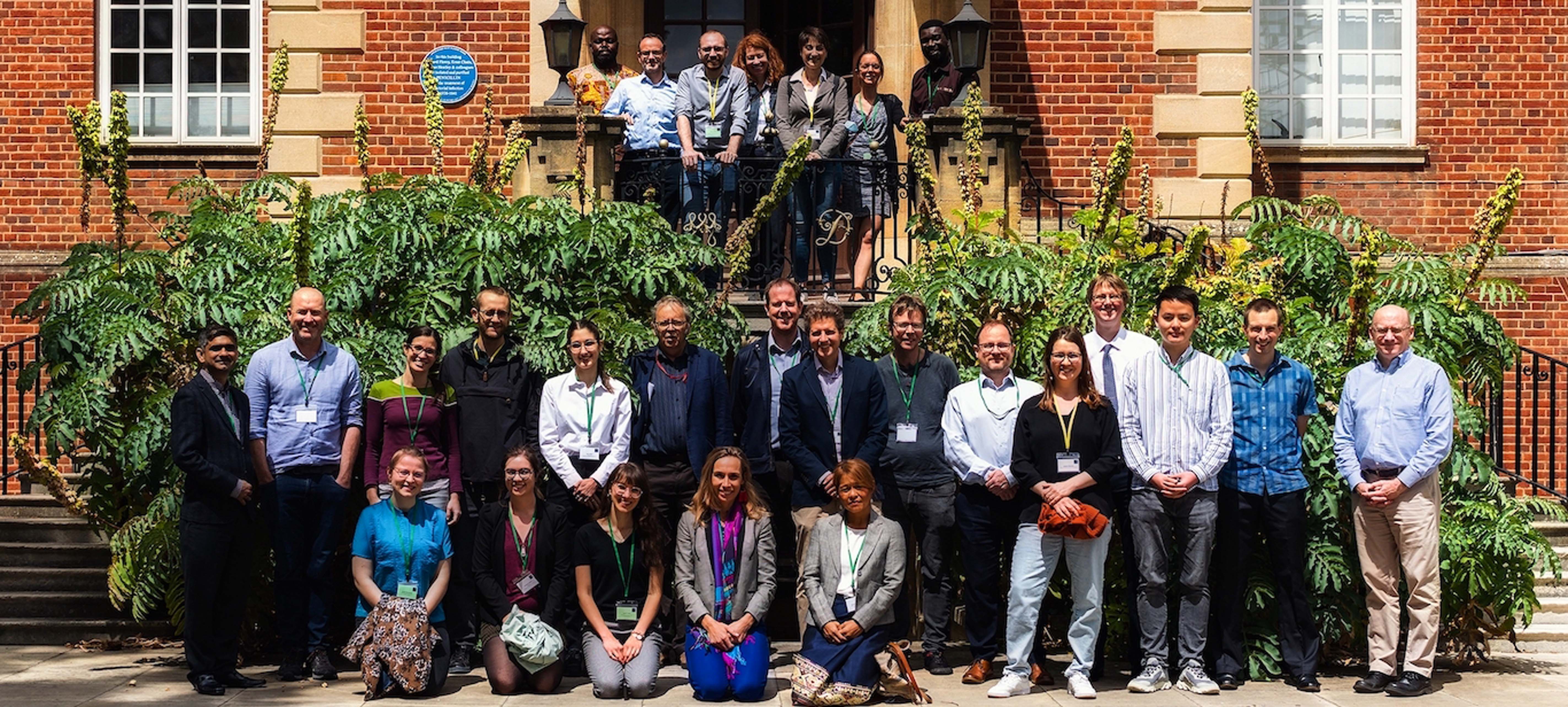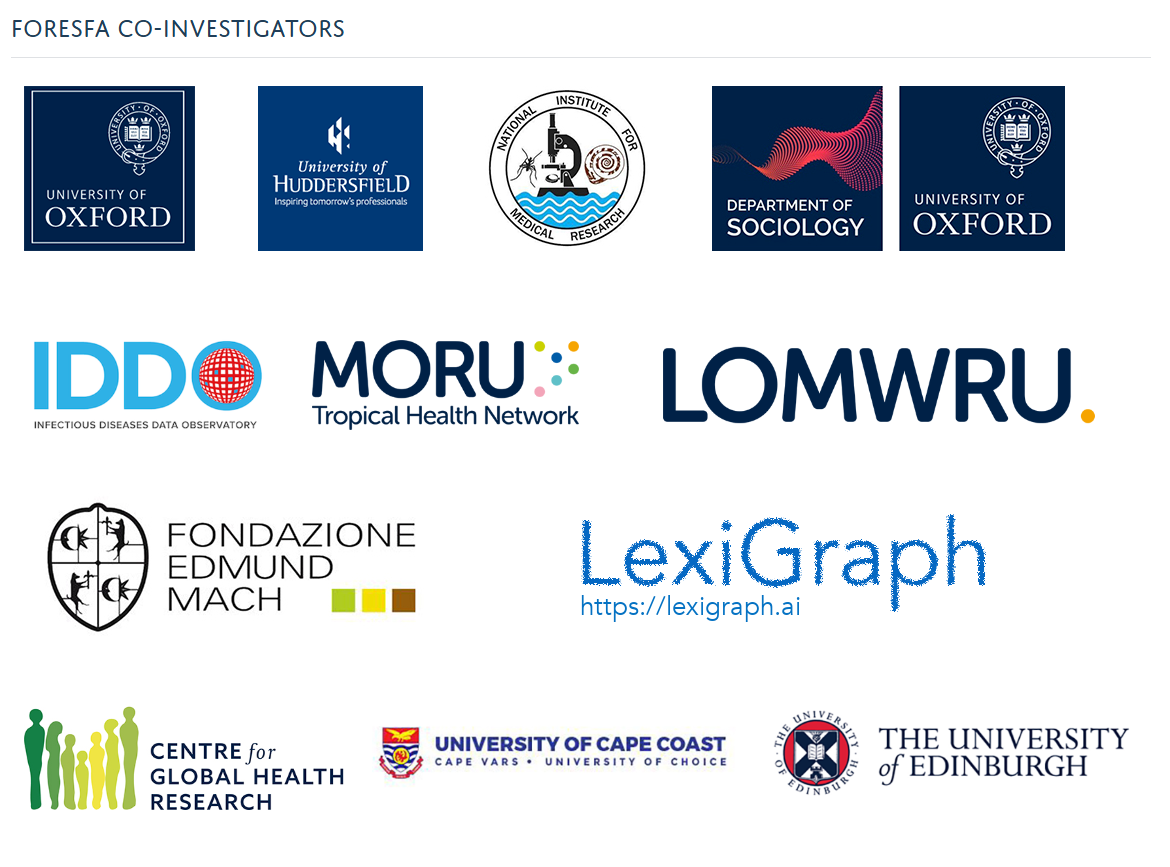Forensic Epidemiology and impact of Substandard and Falsified Antimicrobials
Forensic Epidemiology and impact of Substandard and Falsified Antimicrobials

FORESFA is a multicountry collaborative project. It aims to improve our understanding of the epidemiology of substandard and falsified (SF) antimicrobials and their impact on global public health, by adapting and evaluating forensic tools to identify sources and trade routes of SF antimicrobials. We are also investigating the public health impact of SF medicines to inform global policy and improve our global medicine supply.
Substandard and falsified (SF) antimicrobials are a massive but underappreciated global health challenge in great need of innovative research to inform interventions.
The FORESFA team members are a group of leading experts in pharmacy, public health, forensic genomics, chemistry, social network analysis and modelling who are working together across several countries to build an innovative and multidisciplinary research network. Learn more about the FORESFA Team and view the FORESFA Global co-Investigators map
The two main objectives of the collaborative project are:
- To identify sources and trade routes of SF antimicrobials using novel forensic tools and social network analysis. This is based on innovative previous work that has shown that pollen analysis, stable isotope measurements and environmental DNA monitoring provide clues as to where falsified medicines and their ingredients have come from.
- To investigate the role of SF antimicrobials on patient outcomes, and in the emergence and spread of antimicrobial resistance (AMR). There has been little research to inform the importance, or otherwise, of SF antimicrobials on patient outcome and AMR (link to publication 3 see below). We are using modelling, among other tools, to improve understanding of the relationship between SF and AMR for particular pathogen-antimicrobial pairs within different populations. This part of FORESFA is in collaboration with the GRAM-2 project.
The FORESFA research collaboration is funded by a Wellcome Collaborative Award (2021 to 2025).
WHO estimates that 1 in 10 medicines in low- and middle income countries are substandard (due to errors) or falsified (due to fraud). These products can harm patients, fail to treat diseases, and can contribute to the development and spread of antimicrobial resistance (AMR).
Our vision is to develop a novel field of multidisciplinary investigations to improve the quality of the global supply of medical products. The FORESFA project team members include leading specialists in the field of illegal wildlife trade, forensics, pharmacy, pharmacology, social network analysis and modelling, and will use their techniques to develop innovative research for the neglected global health problem of SF medicines.
We hope to create a better understanding of trade routes of falsified antimicrobials to identify which ‘nodes’ could be prioritised for investigation in the future. In addition, we hope to develop innovative techniques that can be adapted for investigations by medicine regulatory and enforcement authorities. Our aim is to identify sources and trade routes of SF antimicrobials through:
- Usage of innovative forensics techniques such as genomic and chemical and isotopic analyses, to reveal the pharmabiome and chemical spectra associated with SFs pharmaceutical products. These techniques have been successfully used on investigations of illegal wildlife trade and food adulteration.
- Comparison of the ‘pharmabiome’ and chemical spectra of falsified and genuine antimicrobials to reveal more about their place of manufacture and the origin of raw excipients.
- Quantitative and qualitative social network analysis to investigate the trade routes of falsified medicines. Curation and data review of the Medicine Quality Monitoring Globe and in-dept interviews to identify social mechanisms and relationships between traders of SF medicines.
Understanding and measuring the impact of SF antimicrobials on patient outcomes and AMR is vital for raising policy and public awareness and prioritising interventions.
To assess the impact of SF antimicrobials on clinical outcomes, we are utilizing statistical models within a causal inference framework. To understand their impact on AMR, we are developing a suite of within-host and between-host mechanistic models. In both cases, we will interface modelling outputs with detailed data on the frequency of SF antimicrobials and their % API to quantify the impact in defined populations. In order to understand current views and evidence informing the SF antimicrobials-AMR relationship we are also interviewing policy makers in sub-Saharan Africa.



